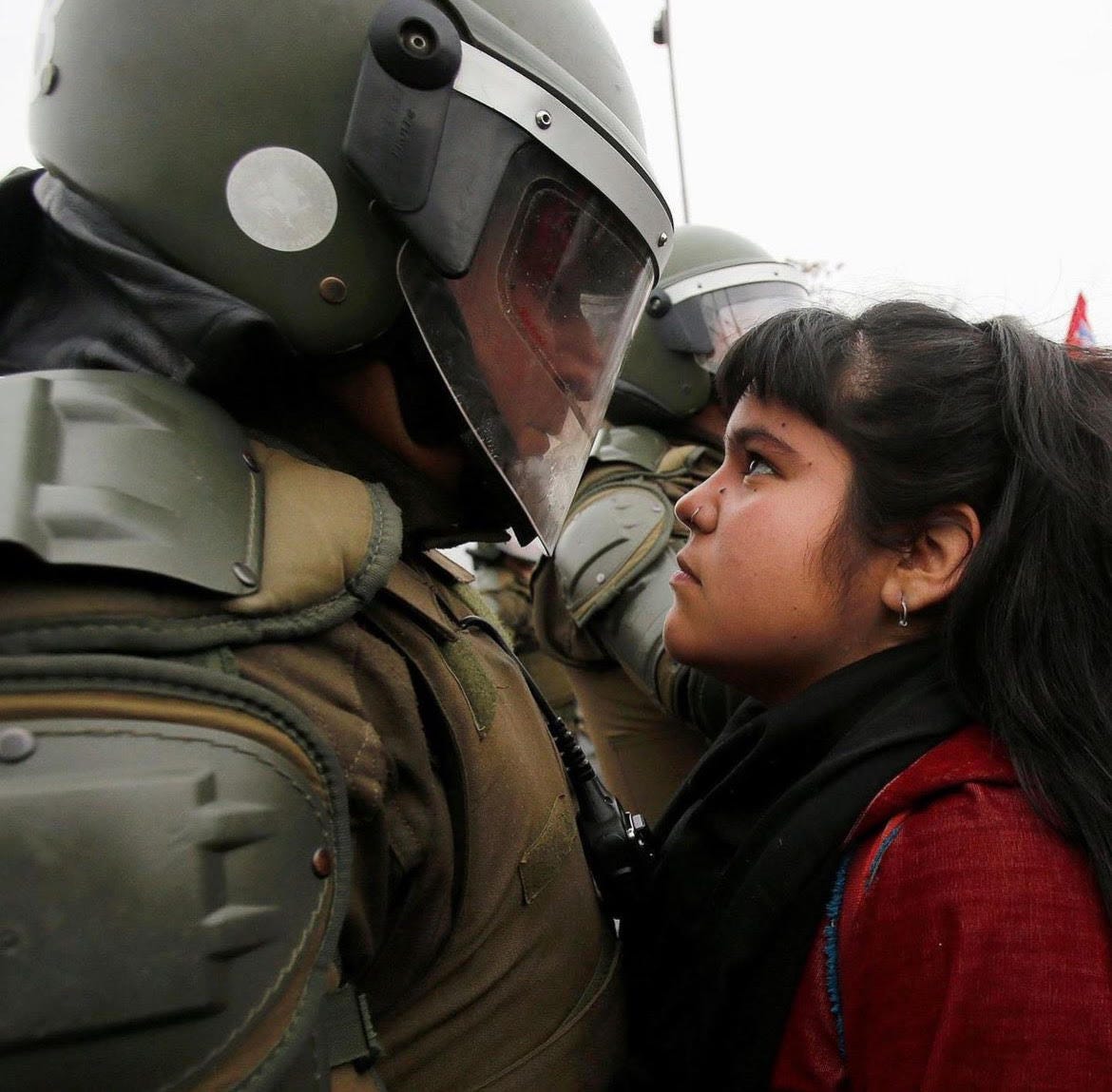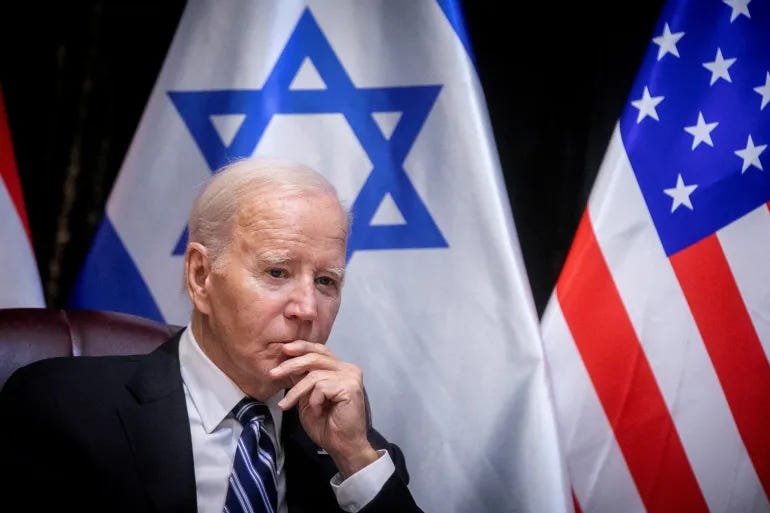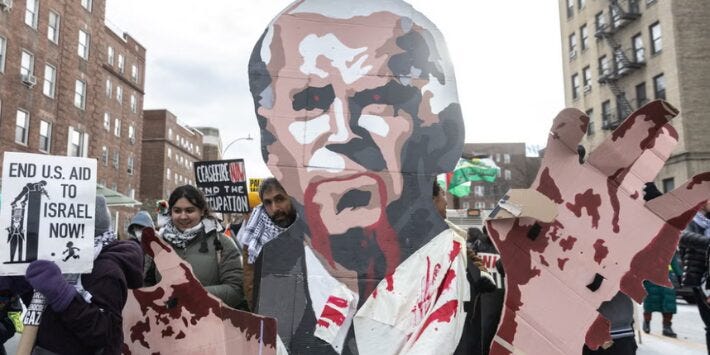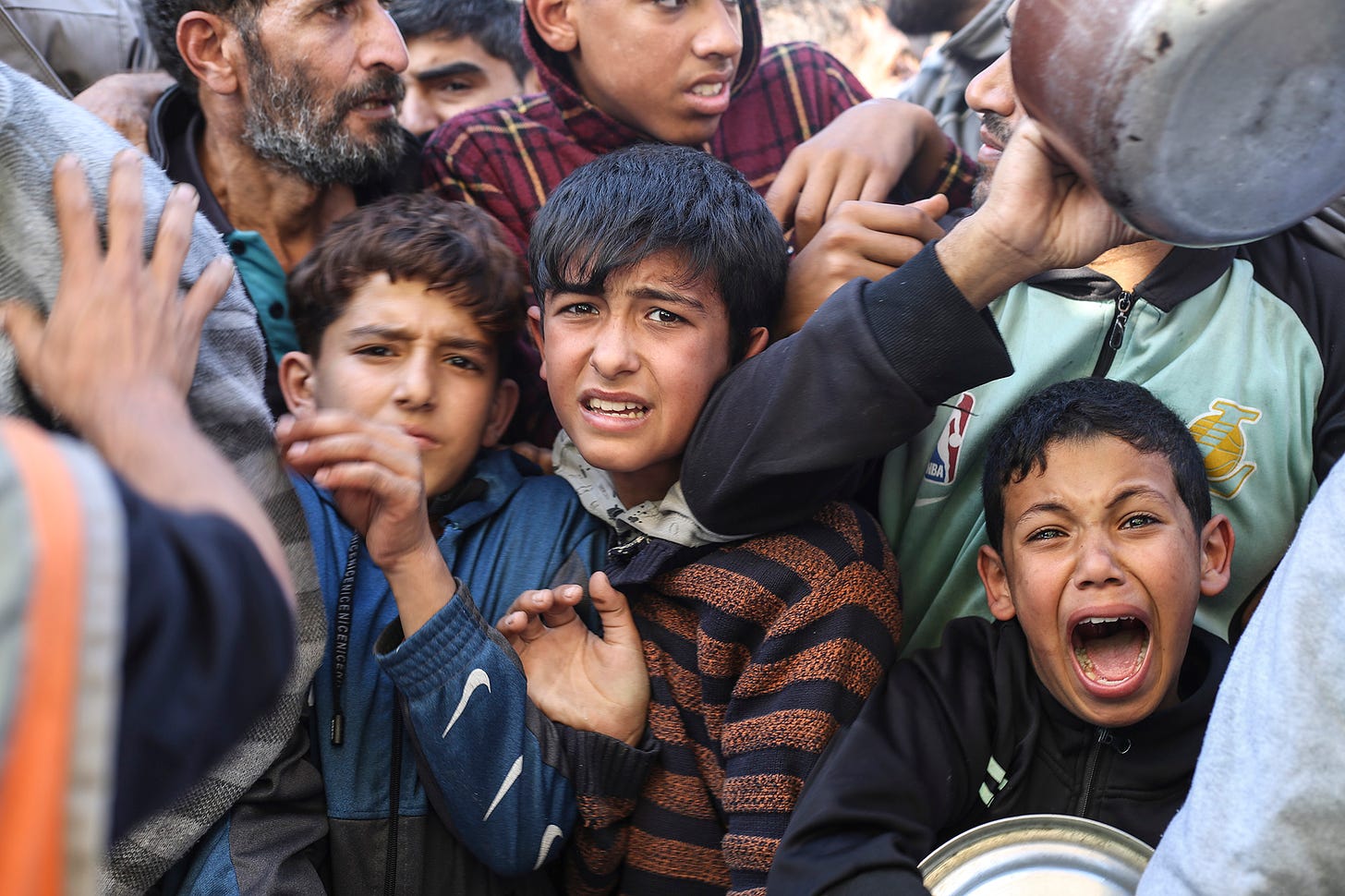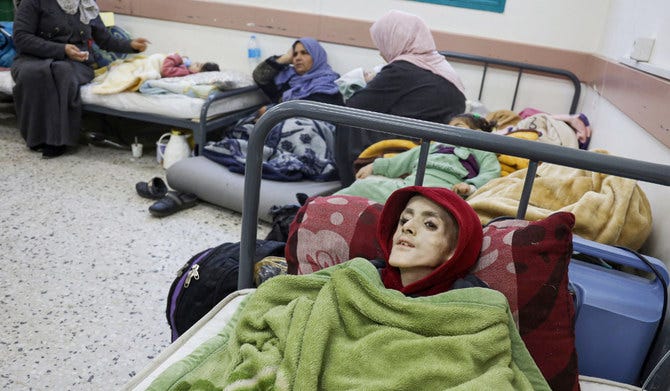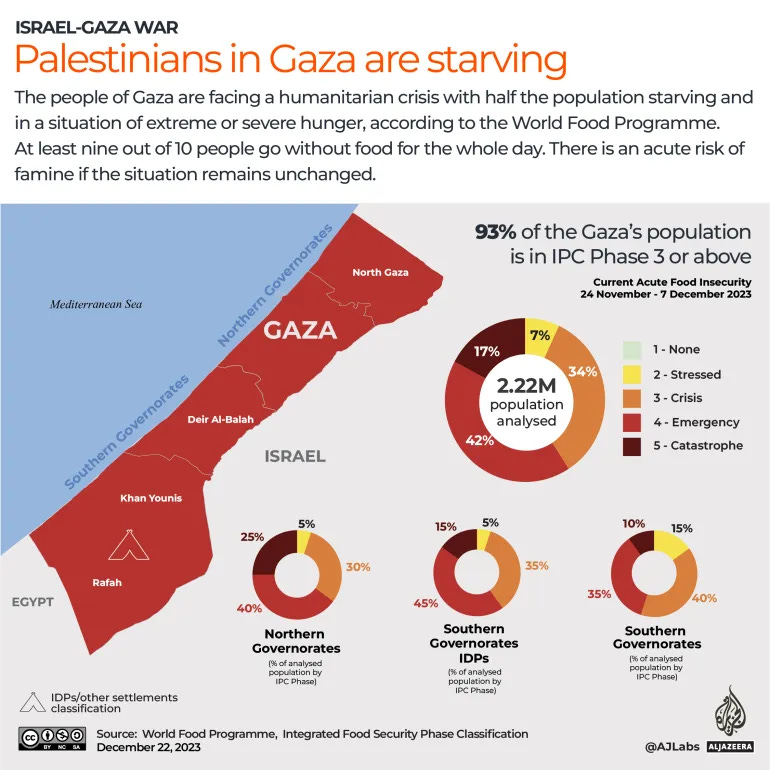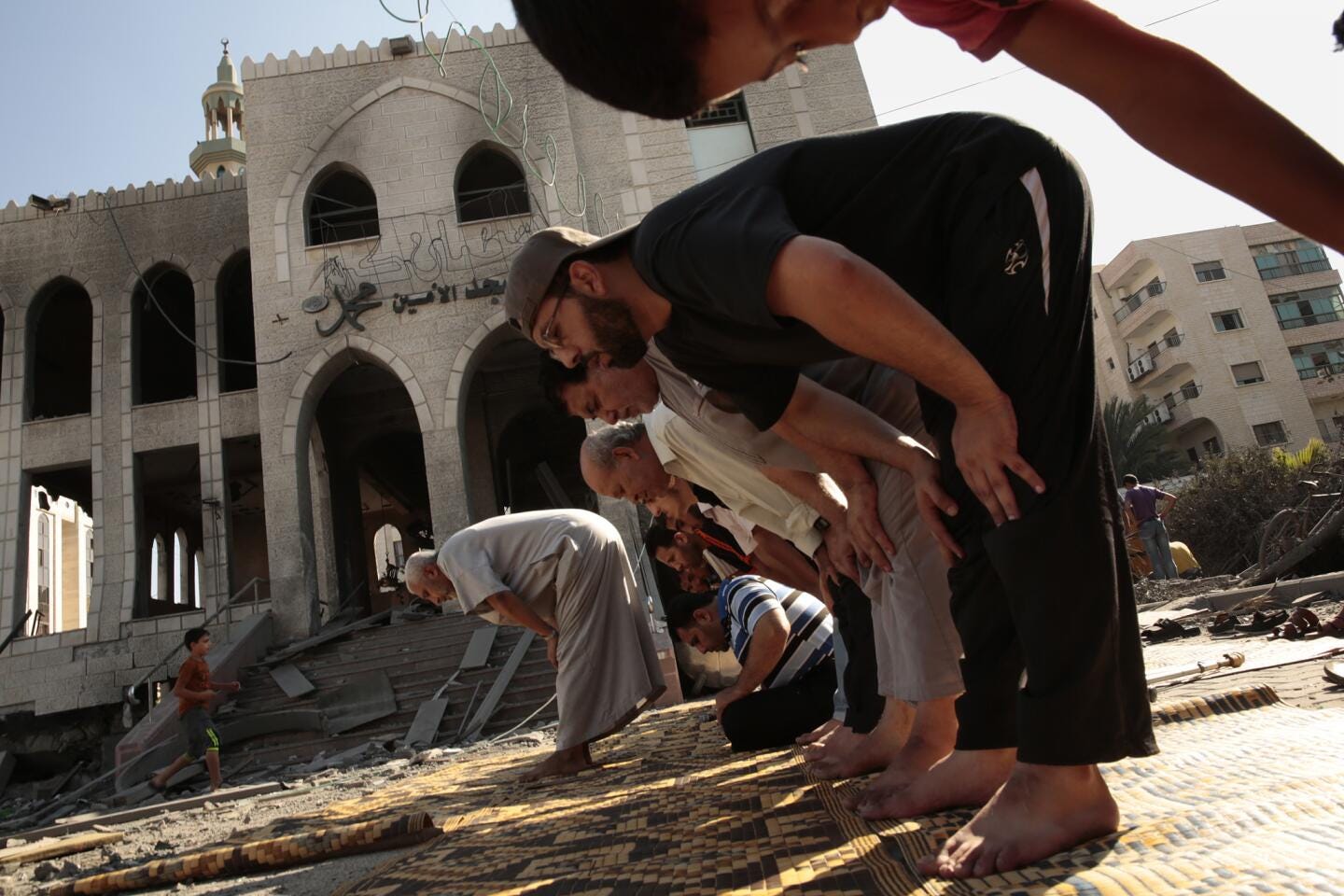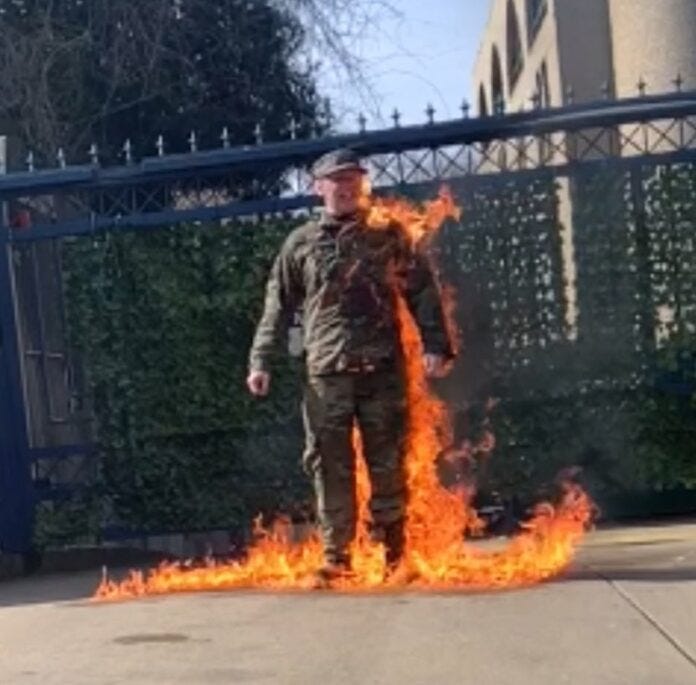The viral image of a protestor using a military policeman’s glass shield as a mirror was not tied to Gaza.
Many were quick to point that out online, shortly after posting the picture on my Instagram page. The image pulled me in seconds after seeing it for the first time, summoning feelings that spanned between awe and indignation.
It was, at once, emotionally seductive and urgent. Speaking powerfully to the season of protest blooming across college campuses and sonic youth of courage that spoke over the cowardice of civil rights elders.
Initially, I knew little about its origins, but the native feelings it spurred within me stormed over these particulars. The courage and defiance of the young woman, no matter what cause pushed her onto the streets in Tbilisi, was about Gaza.
The genocide swallowed up everything in life, good and bad. And for many of us, monopolized our imaginations and the existential passages in between and beyond it.
Right now, anything and everything are about Gaza. For me, and many millions more.
The young Georgian woman staring fearlessly into her reflection, unbothered by the lifeless riot police in front of her. She was brimming with life, juxtaposed with the lifeless statue in front of her. The image spoke loudly beyond the geographic or political context of that scene. The feeling was more transcendent than the facts, and the mis-en-scene pouring over the political matter standing in between her and the policeman.
In between her and us; the audience the image commanded against only yesterday.
Especially now.
Especially 211 days into genocide.
This picture, powerful beyond its place, harkened memory of another image. One of an indigenous girl in Chile, no more than ten years old at the time, standing and staring past another glass shield.
Her eyes, filled with disdain and devoid of the innocence her age deserves, just as timeless. Just as transcendent.
I saw this image, at least six years ago, for the first time. But I saw it again yesterday, for the first time, within the context of Gaza. Through the gripping prism of genocide that claimed the lives of 15,000 indigenous children, and stole the innocence from the yes of many more who endure it.
A young woman and child. Two archetypes of resistance and protest that, without their doing or knowing, became pro-Palestinian icons.
Metaphors that rang into the minds of those, like myself, who live and breathe Gaza every single morning, night, and expanse in between for the better of six months.
The images emanate with fearlessness. They speak with the spirit of resistance that rise from their native soils and pour onto college and universities campuses across the world. Their radiate with the strength that resonates with every individual who dares to speak up, who risks their practical interest for higher principle.
Both images, metaphorically, are about Palestine. Despite their origins in Georgia and Chile, and roots to rage politically untethered to Gaza, the feelings they spawn says otherwise.
The Palestinian poet laureate Mahmoud Darwish wrote that the metaphor of Palestine is more powerful than the land or the language, the political causes or national quest:
“The metaphor for Palestine is stronger than the Palestine of reality. Poetry and beauty are always making peace. When you read something beautiful you find coexistence; it breaks walls down.”
These two pictures are poems of defiance. Sublime snapshots of resistance that have claimed the hearts of Palestinians in Gaza, and those protesting on streets near and far in solidarity with it.
Beyond just imagery, emotion, and metaphor, these pictures build on the very ideas Darwish penned decades ago. About “coexistence,” the images articulate without speaking a single phrase: before walls can be broken down, you must confront them. Defiantly.
Before peace can be had between two warring parties, that justice must be accorded. Definitively.
Pictures are more mobile than words. They are globetrotters, flippant to the walls of culture and the divides of language. Unlike the spoken word, pictures are universally understood without uttering a single word.
Particularly when their meaning aligns with the urgency of a particular moment. During these special intersections, pictures move fluidly beyond walls of language and culture, political causes and ideological positions.
They “break walls down,” in the words of Darwish, and “coexist” beyond the space and time of their native contexts and renewed relevance. In Georgia and Chile then; and Georgia, Chile, and Gaza now.
These two pictures are about Gaza. Not just by metaphor, but even more importantly, by moral. Their stunning emotion and defiant protagonists affirm in us, amid this prolonged season of genocide, a truth that no military can deny; that no genocide can abort.
“You can cut all the flowers but you cannot keep spring from coming.”
— Pablo Neruda
Until this spring and the bloom of ceasefire finally comes, everything will be about Gaza.
Khaled A. Beydoun is an author and law professor. He publishes his daily insights on his socials at @khaledbeydoun.





